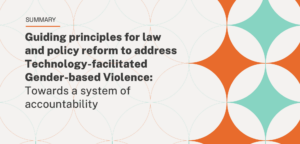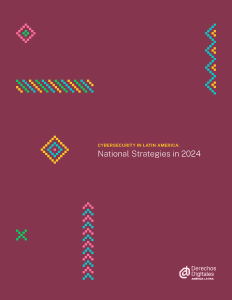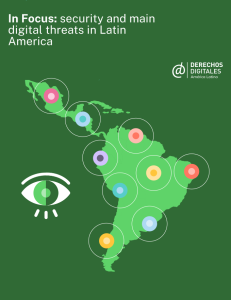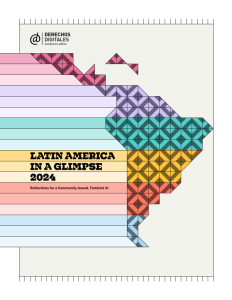Choose language:
Lessons from Internet governance to AI governance: A meaningful participation approach from Latin America

This report, produced by Derechos Digitales, examines how lessons learned from internet governance spaces—such as the World Summit on the Information Society (WSIS) and NETmundial—can be applied to strengthen artificial intelligence (AI) governance from a Latin American perspective. It identifies best practices to ensure meaningful participation, understood as an inclusive and substantive process that goes beyond mere physical or virtual presence, incorporating the voices of historically underrepresented actors, particularly civil society. Key practices include open consultations in multiple languages, effective and equitable access to forums, diverse representation, promotion of gender equity and intersectionality, continuous adaptation of agendas, and the creation of regional spaces connected to global debates.
The report also highlights persistent obstacles in current AI governance spaces, such as the lack of clarity in inclusion mechanisms, limited opportunities to influence agendas, absence of financial support for in-person participation, and non-transparent criteria for integrating civil society into working groups. In response, it offers recommendations for states and facilitating actors, including greater operational transparency; removal of material, financial, and linguistic barriers; strengthening of multi-stakeholder participation; human rights–centered approaches; and diverse, accessible consultation processes. The report underscores that achieving meaningful participation requires political will and sustained commitment to ensure that AI governance decisions reflect the public interest and uphold fundamental rights.





































